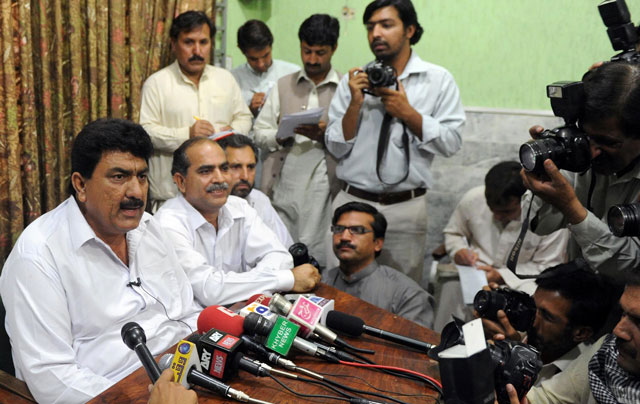Pakistan Takes Short-sighted Approach to Relations with the U.S.
Pakistani military officials took serious offense at the U.S. unilateral raid in their country last May to eliminate the world’s most wanted terrorist.
Pakistani military officials took serious offense at the U.S. unilateral raid in their country last May to eliminate the world’s most wanted terrorist. With last week’s prosecution of Dr. Shakil Afridi, who assisted the U.S. government in tracking bin Laden, Pakistani leaders appear to be trying to restore their wounded pride and reassert Pakistani sovereignty. More likely, such short-sighted actions will only denigrate Pakistan’s international image and make it more difficult to convince the international community Islamabad is determined to fight—not facilitate—terrorism.
 Dr. Shakil Afridi was picked up by the Pakistani authorities a few weeks after the May 2, 2011, raid that killed Osama bin Laden. Dr. Afridi, at the behest of the U.S., apparently led a phony vaccination campaign in Abbottabad in an attempt to secure DNA evidence from the residents living inside the bin Laden compound. Afridi was unable to obtain the samples, but U.S. officials have acknowledged he provided information that helped U.S. officials locate bin Laden.
Dr. Shakil Afridi was picked up by the Pakistani authorities a few weeks after the May 2, 2011, raid that killed Osama bin Laden. Dr. Afridi, at the behest of the U.S., apparently led a phony vaccination campaign in Abbottabad in an attempt to secure DNA evidence from the residents living inside the bin Laden compound. Afridi was unable to obtain the samples, but U.S. officials have acknowledged he provided information that helped U.S. officials locate bin Laden.
A Pakistani tribal court last week sentenced him to 33 years in jail. Media reports today say the tribal court convicted him – not for cooperating with the U.S. government – but for cooperating with militants in the tribal border areas. The Pakistani authorities almost undoubtedly have trumped up charges against Afridi to cast doubt on his character and to try to make it harder for the U.S. to defend him. More likely, Pakistani ham-handedness will only further infuriate American officials.
The U.S. has an obligation to do all it can to help secure Dr. Afridi’s safe release. Some media reports indicate that Dr. Afridi may have turned down an offer from the U.S. government to leave the country immediately after the bin Laden raid. While, in hindsight, his decision was terribly ill-advised, Afridi says he never imagined he would be punished for helping to locate the architect of 9/11.
The sentencing of Afridi is the latest irritant in a string of problems facing U.S.-Pakistan relations. In handing out such a lengthy prison sentence to Afridi, Pakistan is demonstrating that it is taking an increasingly short-sighted approach to relations with the U.S. Pakistani military officials must stop viewing the bin Laden raid as a slight, and instead recognize the threat terrorists pose to their own country’s future. On-going tensions between Pakistan and the U.S. put both countries at a disadvantage vis a vis the terrorists. The Afridi case is a distraction from the real work that needs to be done.
Pakistan’s prosecution of Dr. Afridi on trumped up charges not only reflects poorly on Pakistan’s counterterrorism credentials, it makes a mockery of rule of law in the country. In trying to redeem their sovereignty, Pakistani leaders are instead reinforcing why the U.S. acted unilaterally against bin Laden in the first place and why international trust in Pakistan’s commitment to fighting the terrorist scourge remains elusive.
